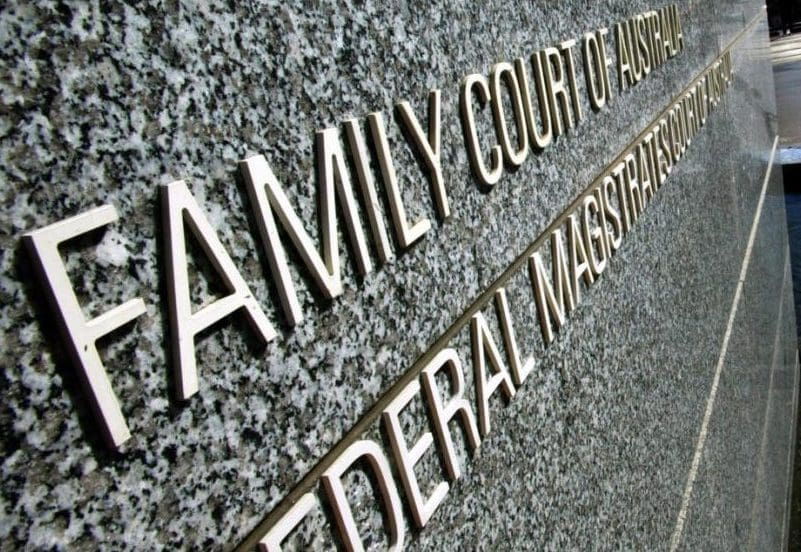
What is a court-ordered paternity test?
A court-ordered paternity test is a DNA test initiated by the Family Court. They can be initiated due to reasonable doubt about the child’s paternity, or by you applying to the Family Court or Federal Circuit Court.
The purpose is to help settle a child support dispute, determine the paternity of the child in parenting proceedings or any birth certificate dilemmas.
The law on paternity-testing
It may be useful to know that the court can order a paternity test on its own initiative, or upon your request. Section 69W(b) of the Family Law Act 1975 states that a court can make a parentage testing order, on the application of a party.
The Family Law Act 1975 also lays out the presumptions of parentage. Without DNA results, the presumption is that you are a parent of the child if you satisfy the elements list Section 69.
Process of getting a paternity test and the costs involved
The court order will allow you, the other parent and the child to attend a laboratory for DNA testing and collection. The two options available are peace of mind testing or DNA typing. Peace of mind testing involves self-sampling and ranges in price from approximately $150.00 - $200.00. DNA typing is more accredited, however, may cost you from $600.00 - $900.00. It is best to consult our experienced family lawyers who can help you explore your options.
If you or someone you know wish to discuss this matter further, then please contact our experienced solicitors at 02 8999 9809 for assistance.
 A bill to merge the Family Court and Federal Circuit Court was approved in the Senate last week. The decision has proven controversial, with many stakeholders, including retired judges, opposing the merger as a ‘band-aid’ solution that will prejudice family law matters to unspecialised judgment and even longer delays.
A bill to merge the Family Court and Federal Circuit Court was approved in the Senate last week. The decision has proven controversial, with many stakeholders, including retired judges, opposing the merger as a ‘band-aid’ solution that will prejudice family law matters to unspecialised judgment and even longer delays.
What is (or was) the Family Law Court of Australia?
The Family Law Court of Australia was established in 1976 under Chapter 3 of the Australian Constitution by the Family Law Act 1975. Although it was infamously bombed in 1988, the creation of the Family Law Court was generally viewed as a landmark in not only the Australian justice system, but worldwide. The Family Law Court was significant because it highlighted the need for specialist legal attention in circumstances that are often confronting, complex and deeply emotional for parties.
Why merge the two courts?
It might be argued that merging the Family Law Court of Australia and the Federal Circuit Court of Australia will streamline resources that would otherwise be spread between two Courts. Alternatively, it could be argued that by combining the Courts into one broader jurisdiction, more urgent matters involving immigration will take priority. This may have a reverse-effect on making the Court system efficient, pushing matters that are ‘less urgent’ down an ever-expanding list.
A shift into a single Court might, however, take some pressure off Family Court judges, who have been reported as dealing with up to 600 cases on their dockets at one time. However, there is criticism that whilst judges might not be as far spread between cases, family law matters are at risk of being handed to judges that lack specialist experience in negotiating intricate areas of family law. There are arguments being made that a new unified Court will provide some passage of relief to rural, regional and remote communities that were previously unable to access the Family Court at all.
The safety of vulnerable people should always be a priority when making legislative changes to Family Law legal processes in Australia. Arbitration and mediation processes present cost-effective and efficient alternatives to attending Court that may help to reduce some of the volume moving through the new system in the future.
If you would like to discuss anything further with our experts at Freedman & Gopalan Solicitors, call us on 02 8999 9837.
 If you have children and are going through a divorce, you may be required to obtain a Section 60I Certificate.
If you have children and are going through a divorce, you may be required to obtain a Section 60I Certificate.
But what is this mysterious legal document and why do you need one? Here’s all you need to know about Section 60I Certificates.
What is a Section 60I Certificate?
If you want to file or make changes to a parenting Order, you will first need to obtain a Section 60I Certificate. The Certificate recognises that you and your former partner have attempted Family Dispute Resolution (FDR).
FDR is a special type of mediation that helps parties to come to their own parenting agreements and settle their own disputes. You are legally required to attempt FDR before taking your matter to court. If FDR fails and you would like to seek a parenting Order, your Application must include a Section 60I Certificate.
Your Certificate, which will look like this, will be placed in one of five categories. This will depend on the outcome of your FDR. The categories are:
- You attended FDR and all attendees made a genuine effort to resolve the issue(s)
- You attended FDR but you or your former partner did not make genuine attempts to resolve the issue(s)
- You did not attend FDR because your former partner refused or failed to attend
- You did not attend FDR because the mediator decided that it was inappropriate in the circumstances
- You started FDR, but the mediator cancelled it partway through because they did not believe it was appropriate to continue
Why do I need a Section 60I Certificate?
If you want to apply for a parenting Order, the Family Law Act 1975 requires that you obtain a Section 60I Certificate. This is unless the court is satisfied that an exemption applies.
When will the court waive the requirement for a Section 60I Certificate?
There are very few reasons why a Court would accept an Application for filing without a Section 60I Certificate. The requirement will only be waived if you file an affidavit outlining that:
- your matter is urgent,
- there is evidence of family violence or a threat of family violence,
- you or your partner is unable to participate effectively in FDR, due to incapacity or physical remoteness, or
- your application relates to the breach of an existing Order made in the last 12 months. There must be reasonable grounds to believe that one party has shown a serious disregard for their obligations under that Order.
How long does it take to get a Section 60I Certificate?
The amount of time it will take to receive a Section 60I Certificate will depend on many factors, such as the demand for FDR services, and how quickly you and your former partner begin the process.
Will my Section 60I Certificate expire?
Your Certificate will expire after 12 months. After this time, you will need to recommence the FDR process and seek another Certificate before filing parenting Orders.
How do I get a Section 60I Certificate?
A Section 60I Certificate can only be issued by an accredited Family Dispute Resolution Practitioner. To find a practitioner, you can contact Relationships Australia or research private FDR practitioners near you. For more detailed information on Section 60I Certificates, read this fact sheet.
If you need help finding a registered FDR practitioner, or you would like more information, please do not hesitate to contact us on 02 8999 9809.
